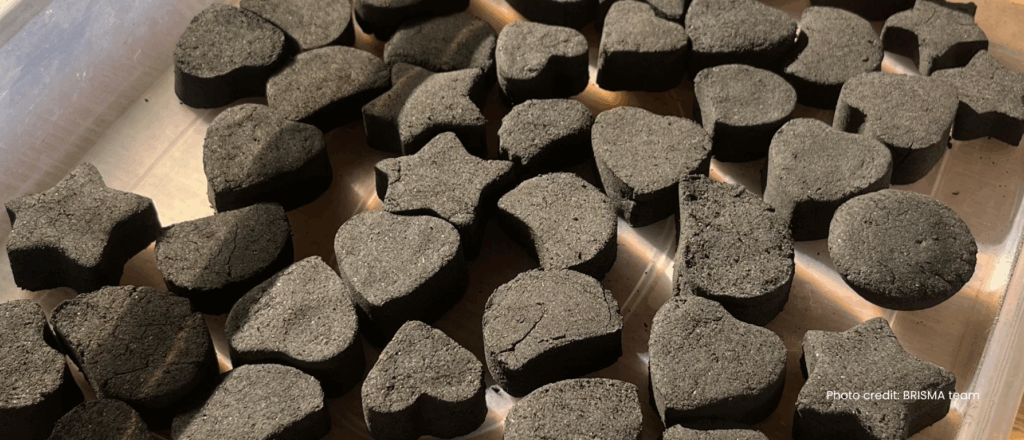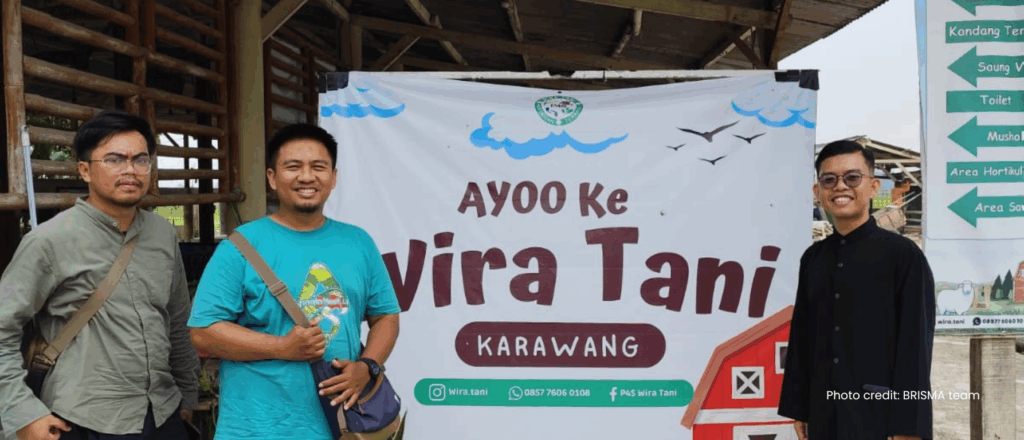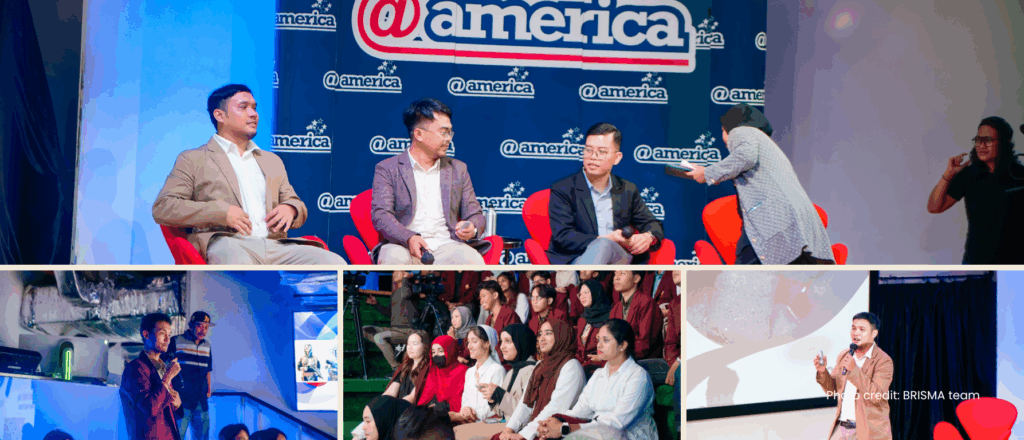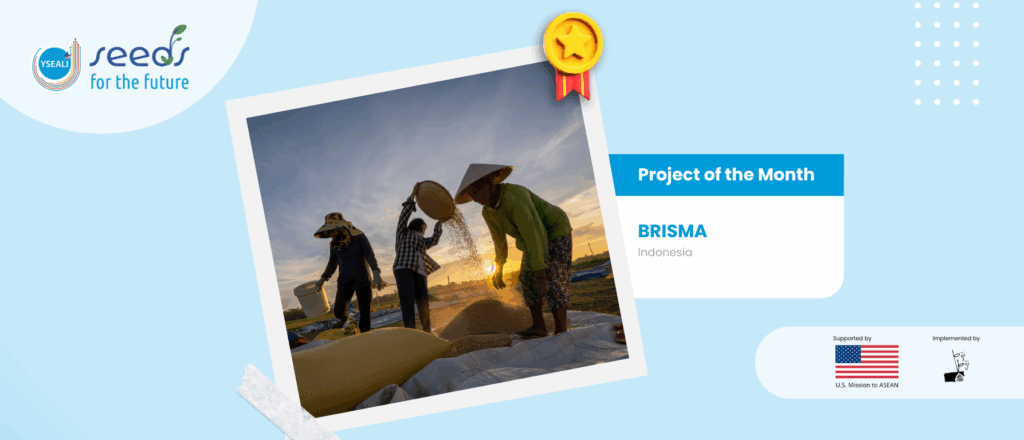About the Project
BRISMA (Briket Sekam Beraroma) is an initiative based in Karawang, Indonesia, that transforms overlooked natural resources into practical, high-value products. In many agricultural neighborhoods, rice husks are treated as waste, often burned in open fields, leading to pollution and missed economic opportunities.
We take a different approach. By collecting rice husks from local farmers, we process them into aromatic briquettes infused with essential oils. These briquettes are not only functional, serving as mosquito repellents and therapy aids, but also marketable. More than just a product, BRISMA is a locally-rooted system that helps farmers generate revenue from what they already have, while reducing pollution and expanding local economic opportunities.
Why do you care about this specific topic/issue?

As lecturers in environmental and agricultural studies, we’ve seen firsthand how much potential goes to waste in farming, not from a lack of resources, but from the lack of systems to make use of them. Karawang is one of Indonesia’s major rice-producing regions, and with each harvest comes an overwhelming amount of rice husks. Most of it is treated as disposable.
We care because we live and work among these districts. We’ve seen the smoke rising from burning husks. We’ve spoken with farmers who would rather put these materials to use, if only they had a way. We believe these byproducts are still full of value, and they can support not just cleaner practices, but stronger livelihoods.
Why did you decide to start this project?
The idea for BRISMA came from something we saw almost every day, piles of rice husks being burned by the roadside. We knew that what was being treated as waste could become something more. That led us to explore small-scale briquette-making and later to infuse the product with essential oils to add functional value.
Because we are educators, we already had strong relationships with farmers. We listened first, then invited them to become part of the solution. BRISMA was born not just as a product innovation, but as a partnership between academia and the public, between research and practical use.
What are your goals for this project?
In our pilot phase, we aim to sell 100-150 packs of aromatic briquettes, while training at least 60 farmers to produce them independently. We’re creating a model where rice husks that are typically discarded, are seen as a resource to be cultivated, refined, and shared.
But we’re also aiming for something deeper: a shift in mindset. We want farmers to see the value in what they already have. We want university students to think differently about byproducts. And we want the public to understand that innovation doesn’t always require new materials; sometimes, it begins with seeing old ones in a new way.
How will YSEALI Seeds help you achieve your goals?
The YSEALI Seeds for the Future program has been instrumental in turning our concept into an implementable project. The financial support has allowed us to purchase equipment, design public training sessions, and expand our reach.
Equally important, the capacity-building workshops, especially those on Theory of Change, helped us define a clearer pathway from ideas to outcomes. We now approach planning and measurement with more focus, and we’re thinking more intentionally about how to ensure our work is responsible, scalable, and profitable..
What have you accomplished and implemented so far?

Recently, we’ve built partnerships with dozens of farmers across Karawang, not just as beneficiaries, but as partners. With new machines ready for field deployment, we’re preparing to launch our first public marketing session in July, followed by three briquette-making workshops by the end of 2025.
We’ve also secured early buy-in from village heads (Kepala Desa) and are building a support system that ties our initiative to existing rural development structures. Every conversation, every co-designed step, strengthens our foundation.
What are the most significant lessons learned you’ve experienced so far?
One of the most important lessons we’ve learned is that knowledge alone doesn’t guarantee participation – economic viability does. Farmers are willing to engage deeply when they see a tangible return.
That’s why we’ve adapted our model, installing three briquette machines directly in village centers to ensure accessibility. We’re also buying rice husks directly from farmers, creating a new and steady income stream. Beyond training, we stay actively involved in production, ensuring that this process becomes self-sustaining. These changes have helped build trust and created a stronger sense of ownership.
What are the success stories you can share with others?

One of our most affirming moments took place during a recent public talk show at @america in Jakarta. We had anticipated a modest crowd, but instead, the room filled with farmers, students, and the public, all eager to engage and learn more about our work.
That turnout reminded us why BRISMA exists. It confirmed that our solution isn’t just technically viable; it’s meaningful to the people it’s designed for. That day renewed our confidence and underscored a deeper truth: this project doesn’t belong to us alone, it belongs to the farmers of Karawang and beyond.
